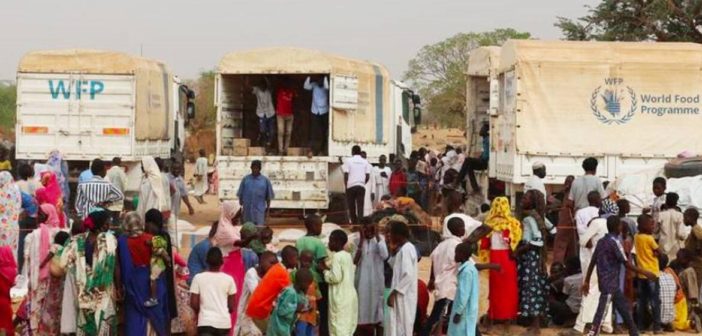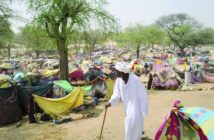Sudan has been at civil war for nearly one year since last 15 April 2023 between the Sudanese Army and the paramount militia Rapid Support Forces. The brutality of war has exceeded all conceptions of war images, to include untold gross human rights violation that adversary tarnished the fighting damages internationally. Having no a clear vision or plan for a durable peace deal, the war is still going on. Many negotiations and peace initiatives have been presented at both regional and international levels but in no avail. The nature of the conflict has been transformed from being a political and military one to a civil one based on ethnic and regional motivations.
What has complicated the Sudan issue is the spiral of war on its geographical expansion, the country rapidly ravaged by the uncalculated war repercussions. The destruction of basic structures of the states and the torn social fabric cohesion has brought up new disastrous results that have made peace literally unreachable. Despite the fact that the international efforts to seek peace failed to impose a workable pressure on both parties, the both fighting parties are held accountable for the mass killing they perpetrated—sometime discriminately.
Mostly, the Saudi-American-led peace initiative at Jeddah is considered to be one of the focal operative initiatives ever presented projects to bring an end to the Sudan crisis. It launched at the beginning of the eruption of war has made it a mostly trusted political process on international levels. Beside other regional initiatives such as the Intergovernmental Authority on Development, IGAD the regional organization which has been rebuked by Sudan de facto government the military party led by General Abdel Fatah al-Burah under the pretext of the claimed organization position pro the Rapid Support Forces and its leader Gen. Mohamed Hamdan Dalago (Himiti).
Currently, the war has made it worse for Sudanese people daily life as a result of ongoing war. Moreover, the war has already affected the innocent civilians by displacement, enforced immigration and now threatened by starvation for millions. International aid agencies reported that the imminent famine would bring death and diseases to millions.
Regrettably, the Sudan war has become a forgotten war regardless of its devastating consequences. The world is largely focusing on other burning points such as Ukraine and Gaza in Palestine, but this shouldn’t absolve the world from ending or at least mitigate the Sudan crisis for the sake of humanitarian responsibility. The international community should have worked hard to realize the possible peace options that can meet the urgent humanitarian needs. For now, the crisis is not only a political one rather than a humane priority. The statements were released by high international officials calling upon UN agencies, Sudanese parties and other international agencies to play their role in commitment to the obligations to save Sudanese lives.
Whether the war serves any agenda represented by both parties as many journalistic reports suggested, the responsibility remains a Sudanese issue. Indeed, the Sudan war has and still affecting the neighboring countries putting a new burden on those with sluggish economies states in terms of relief, immigration and other security capabilities. Other states expressed their concerns over terrorist operations to be revived amid the chaotic situation in Sudan in the absence of a controlling authority.
War as a phenomenon has always been a source of the humanitarian crisis even though the Sudan political history is replete by long internal conflicts embedded in tribal ethnic and political struggle for power with its political and military elites. In this war which is not only a replica of the previous wars, it would sweep Sudan as a country and people out of the recognized map. Virtually, the country is at the brink of partition on a regional and tribal basis, and has no foreseeable plan of peace to avoid such risky destiny.
Disapproval of international peace initiatives by Sudanese politicians, it only means the continuation of vast number of refugees, internal displaced people IDPs, destruction of infra structures, dysfunction of and many other untold human violations including rapes and dislocated of personal longings. In this stance, peace initiatives should have moved from political maneuvering into fundamental strategic vision for the interest of the Sudanese people. The challenge of the new approach to Sudan inhuman war is the nature of the conflict between the warring parties, no one willing to accept peace outcomes which in turn would mean a military defeat! This tendency could easily be traced on the both parties’ statements, ultimately the result on the battleground has widely appeared on the negotiation table and political polarization. Peaceful solution could provide a roadmap with a new hope for a new Sudan out of the current crisis.
###
* Sudanese write & political analyst.




